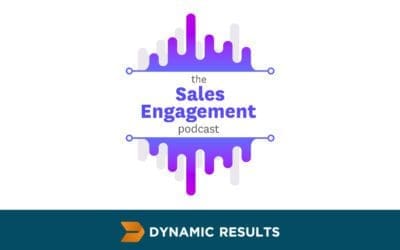
Navigating Optimism and Pessimism for Enhanced Organizational Performance
Henry Evans, a renowned leadership expert, delves into the complex interplay between optimism and pessimism within the workplace. Drawing from personal experiences and extensive research, Evans presents a compelling argument for the strategic integration of both perspectives to foster a culture of accountability, innovation, and emotional safety.
Hi, my name is Henry Evans. I’m a five time CEO, global consultant, and a recovering optimist.
Life was going really well for me. My father practiced meditation every day (82, and still practicing). Through his example and those of my teachers and mentors I learned not to sweat small stuff, reserving energy for real problems: ill relatives; my own health; or Spotify not loading properly when I NEED to hear Miley Cyrus’ latest track.
My optimism attracted friends, significant others, and got me invited to great parties. I became a first-time CEO at 25, was a competitive martial artist, carried a positive attitude, and built a company that made it to the top of its industry within 5 years. We were enjoying our 10th year of double digit EBITDA , had bleeding-edge technology, and all was good. I felt we could do anything and so did our people. As Stacy Colino wrote, “emotions, like germs, are contagious.”
I had the company highly leveraged as we launched an innovative online client interface. I refused bank loan offers; thinking their money was too expensive. We had such strong cash reserves that we self-financed construction of our software. Fueled by optimism, I believed we would replenish our cash in 4-6 months. Each year I had failed to address the alarmingly high percentage of topline revenue from only two clients, thinking, “this will be the year we diversify our revenue streams”. In addition, I took our marketing and sales folks away from their responsibilities, directing them to focus on software implementation. I felt that rebuilding our pipeline again would be easy with this great product. I needed all hands on deck for an on-time product launch.
Meanwhile, I had advisors, particularly in my Vistage group (a leading CEO think tank), telling me to use “OPM” (other people’s money) to finance the deal and maintain my cash reserves. They also advised me to mitigate high client concentration and bring in new clients (this I did try to do, but failed). Lastly, they told me to ABM (always be marketing). I heard them, and knew they had my best interests at heart, but my optimistic voice was louder, saying, “you do this your way, it will work”.
The Double-Edged Sword of Optimism in Leadership
Evans shares his journey as a five-time CEO and global consultant, reflecting on how his unbridled optimism, while a driving force in his early success, eventually led to significant challenges. He recounts the critical moments leading up to and following the events of September 11, 2001, highlighting the vulnerabilities created by excessive optimism and the lack of a balanced perspective in decision-making.
We launched on time, and the software worked. Launch was Monday, September 10, 2001. The next morning, Tuesday, 9/11, the world faced a new problem. So did my company: No cash reserves; Only two clients representing 75% of our topline revenue; and No New Business. Within a year, my industry-leading organization was reorganizing under Chapter 11.
Friends and colleagues said it “wasn’t my fault”, and that “thousands of companies failed because of 9/11”, but I knew better. My optimism, which had served us well for many years, had us so highly leveraged that we couldn’t withstand the following economic collapse.
One of our client organizations was looking to make a significant acquisition of a company whose topline revenue was larger than their own. The board of directors agreed that the deal made sound financial sense. At our suggestion, one of the directors suggested that in addition to the financial and operational assessments, they perform a cultural assessment as well. The concern was that the acquisition target’s executive team had been profitable and independently owned for 75 years, and may not be open to active oversight. At first, the director raising the concern was perceived as “not fully understanding the financial upside of the deal”, and was a “worry wart”. After a few rounds of making the suggestion, the board agreed to a full cultural assessment of the target company. In fact, our assessment revealed that while the owner/sellers were fully on board with acquisition taking place, most of the executive team who would be responsible for sustainable success, post-acquisition, were already looking for other work. Ultimately, the deal went through with a cultural integration plan, and a strategy to retain top talent, which in the end, worked.
Embracing Pessimism as a Strategic Asset
Contrary to the often negative connotation associated with pessimism, Evans, alongside Dr. Colm Foster, outlines five ways to leverage and appreciate the pessimistic viewpoints within your team. From ensuring diverse perspectives are considered to maintaining a realistic assessment of risks and challenges, the video underscores the value of pessimism in achieving a well-rounded and effective leadership strategy.
Now, about those pessimists… In the book I co-authored with Dr. Colm Foster, (friend, colleague, and thought-leader in Emotional Intelligence), we give you research-based advice on the:
Five Ways to Leverage (and Love) Your Pessimists
- Get a pessimist on your team. They offer perspectives that your optimists might be missing (or outright avoiding).
- Invite their input. Ask them where the obstacles or roadblocks are in executing the plan.
- Publicly appreciate them. That’s right; thank them for their input and contribution. They’ll feel appreciated and encouraged to speak up again.
- Use our “state it once” rule. Pessimism offered once may be pragmatic and thought- provoking. Repeated pessimism is a buzz kill, and may be counter-productive.
- Don’t put pessimists in leadership roles. No one wants to be led into battle by someone telling them they’re going to die.
Some pessimists in your life should be ignored. Ones who say, “don’t start your own company”, “there’s too much competition”, “you’re too young”, or “your ideas won’t work”. Never let people derail your dreams, but invite and listen to input that disagrees with your instinct until that instinct has been vetted against reliable data and peer perspectives.
By acknowledging the strengths and limitations of both optimism and pessimism, leaders can create an environment where diverse perspectives are not only welcomed but seen as essential to the organization’s success. Join Henry Evans in exploring how to skillfully navigate the spectrum of optimism and pessimism to drive results, foster emotional safety, and build a high-accountability culture in your organization.
Henry’s Last Bit of Advice?
Next time you have a “great idea”, invite a pessimist to lunch and listen carefully to what’s said.
—
Dive Into the World of Leadership
Dive into the world of leadership with “Step Up, Lead in Six Moments that Matter” and transform your approach to create an emotionally safe culture where everyone thrives. Start leading with impact and safety today!



